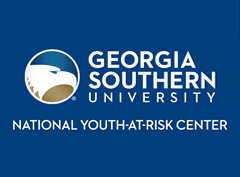Libraries Here and In the Community: NYC's Shelter Library Pilot Project
Location
Bowie AB
Focused Area
Youth-At-Risk in Urban Settings
Relevance to Focused Area
This session will explore how public-private partnerships are being used to improve literacy outcomes for children in New York City family homeless shelters. This information can be used by others in urban settings to develop shelter-based libraries and reading programs.
Primary Strand
Academic Achievement & School Leadership
Relevance to Primary Strand
Research demonstrates that children who experience homelessness underperform in reading and literacy measures when compared to their housed peers, even those in poverty. This session will explore how community-based interventions can support homeless children's literacy development and reading enjoyment.
Brief Program Description
This session describes how several New York City agencies including the Department of Homeless Services, the Queens Library, and the two other city library systems, piloted a library-building program in City family shelters. Educators, researchers, and service providers will learn how community-based partnerships can be leveraged to improve reading and literacy outcomes for children experiencing homelessness.
Summary
This session will provide proven, practical ideas from public library and homeless services staff who implemented a citywide pilot project to create public library-supported, volunteer-maintained libraries in family shelters in New York City. The pilot included development of pro-literacy activities for children and families led by librarians from local public libraries, donated collections and furniture, and volunteer recruitment and development through the homeless services agency, with the goal of supporting reading and literacy skills for children of all ages and their caregivers. The presenters will describe how this award-winning pilot was used as a springboard for additional interventions to support the love of reading and acquisition of literacy skills in children living in family shelters, and will share details on the New York City homeless services system and how public libraries reach and serve individuals and families experiencing homelessness. Participants will understand the ways libraries and service-providers can work together to support literacy in children and families in temporary housing and will learn how to develop an onsite library through partnerships, donations, and volunteer opportunities. Participants will also learn simple techniques to implement pro-literacy activities for children and parents in shelter settings. This session will help develop participants' knowledge and skills around supporting educational and recreational activities for children experiencing homelessness while developing partnerships with public libraries. It will also help providers expand their ability to support reading and literacy in shelters through practical techniques for planning spaces and programs. Additionally, these techniques are transferable, and can be used to introduce and incorporate other programs and partnerships into shelters and service agencies to better serve children and families.
Evidence
For many people experiencing homelessness, libraries can be a sanctuary as well as a place in which to engage in activities around literacy and learning (Hodgetts et al. 2008; Juchniewicz 2012; Toolis and Hammack 2015). There is significant research (Rubin et al. 1996; Noll and Watkins 2003; Sinatra 2007; Walker-Dalhouse and Risko 2008; Cutuli et al. 2013) correlating children’s experiences of homelessness with poor school performance, including below-grade-level reading, as well as mothers’ incomplete education with increased likelihood of homelessness (Institute for Children, Poverty and Homelessness 2011). It is unclear, however, how (or even if) these correlations are enacted in the lived experiences of families experiencing homelessness. Research has demonstrated that children who experience homelessness face greater challenges than more stably housed peers, even those in poverty. Beyond the tangible services that libraries can provide families that are experiencing homelessness, there is an undeveloped potential for libraries to act as a vehicle through which families can share their stories and experiences. Barton et al. (2003) describes how important it is for educators and researchers to incorporate the stories of homeless youth’s lived experience in their work
Format
Individual Presentation
Biographical Sketch
Vikki C. Terrile, MSLS, MA, is the Director of Children and Youth Programs and Services at the Queens (New York) Library. She has worked with children and families experiencing homelessness for many years through library programming and outreach, and is currently a doctoral student in education at SUNY, the University at Buffalo.
Susana Vilardell, MPA, is the Director of Education at the New York City Department of Homeless Services. Previously, she was the Director of Students in Temporary Housing programs for the New York City Department of Education, and served as the Board of Directors, Secretary for the National Association for the Education of Homeless Children and Youth (NAEHCY).
Start Date
10-26-2017 3:30 PM
End Date
10-26-2017 4:45 PM
Recommended Citation
Terrile, Vikki C. and Vilardell, Susana, "Libraries Here and In the Community: NYC's Shelter Library Pilot Project" (2017). National Youth-At-Risk Conference, West (2015-2017). 9.
https://digitalcommons.georgiasouthern.edu/nyar_vegas/2017/2017/9
Libraries Here and In the Community: NYC's Shelter Library Pilot Project
Bowie AB
This session describes how several New York City agencies including the Department of Homeless Services, the Queens Library, and the two other city library systems, piloted a library-building program in City family shelters. Educators, researchers, and service providers will learn how community-based partnerships can be leveraged to improve reading and literacy outcomes for children experiencing homelessness.
